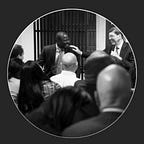A Research Project on Fostering Market Creating Innovations in Africa
In February 2008, I read about Amaretch, an Ethiopian girl who woke up every day at 3AM and trekked miles to the city market to sell firewood. She was ten. Having grown up in Nigeria, I was exposed to street children and debilitating poverty, but I had come to view such things as a way of life and did not believe I could do anything to improve the situation. Amaretch’s story, however, changed my worldview and inspired me to apply to business school in order to figure out how to use business to engender economic growth and employment in Africa.
Attending business school with such a big question was very difficult for me. Understandably, most of the career opportunities were limited to positions that were specific to an organization’s needs. That is until I found myself in a second year course created by Professor Clayton Christensen called Building and Sustaining a Successful Enterprise. Each class in the course introduced students to management theory that would empower us when making decisions for which data does not exist.
The theory that had the most impact on me was the theory of disruption. The elegance of the theory lay in its simplicity. There are two types of disruptions; low end and new market. A low end disruption targets the least profitable customers in an existing market, motivating entrenched incumbents to flee or gladly leave those customers for the new entrants, or disruptors. A new market disruption targets non-consumption* by focusing on people that cannot afford the existing products on the market. Some examples of low end disruptions are Walmart (discount department store), Kia (automotive company), and Amazon.com (e-commerce company) while examples of new market disruptions are wireless telephony, Intel microprocessors, etc. In both cases, the incumbents are not motivated to fight the disruptors.
Instantly I began to think — what would it look like if investors, managers, entrepreneurs, and policy makers in Africa employed this sort of thinking to address some of our major challenges? Fortunately for me, Professor Christensen was thinking something similar and invited me to work with him at the Forum for Growth and Innovation. Years ago, he hypothesized that the type of innovation that entrepreneurs engage in is very important for long term economic and job growth.
Over the next year, my task is to study one of such innovations — market creating innovations (MCI) - and to disseminate my learnings, thoughts, and questions to as many people as would listen. MCIs transform complicated and expensive products typically only available to the rich and skilled into simpler and less expensive products essentially making them accessible to everyone in society. Read more on the power of market creation here.
Over the next year, I invite you to come on a journey of learning with me. My task, with your help, is to figure out ways to implement successful market creating innovations in Nigeria, and then in other parts of the world. I will be studying several market creating innovations in different parts of the world and how they became successful. I will share my learnings with you and would appreciate your thoughts as we work to improve the lives of millions of people in the world.
*non-consumption is the inability for people to afford products they need due to cost, time, or skill constraints they have.
